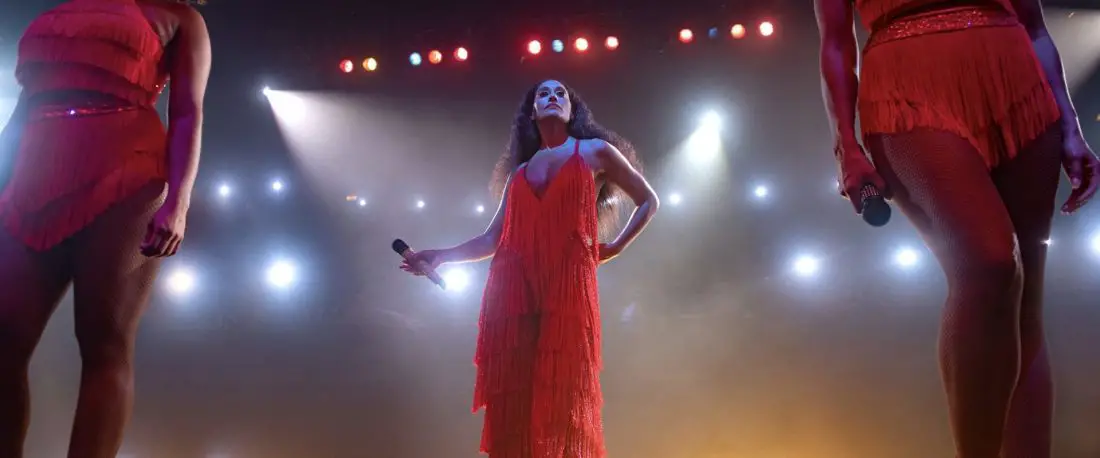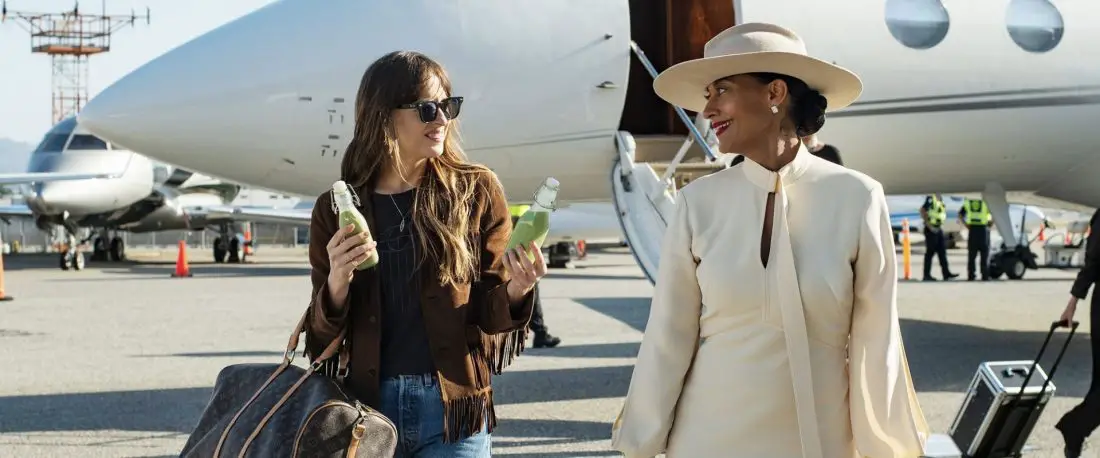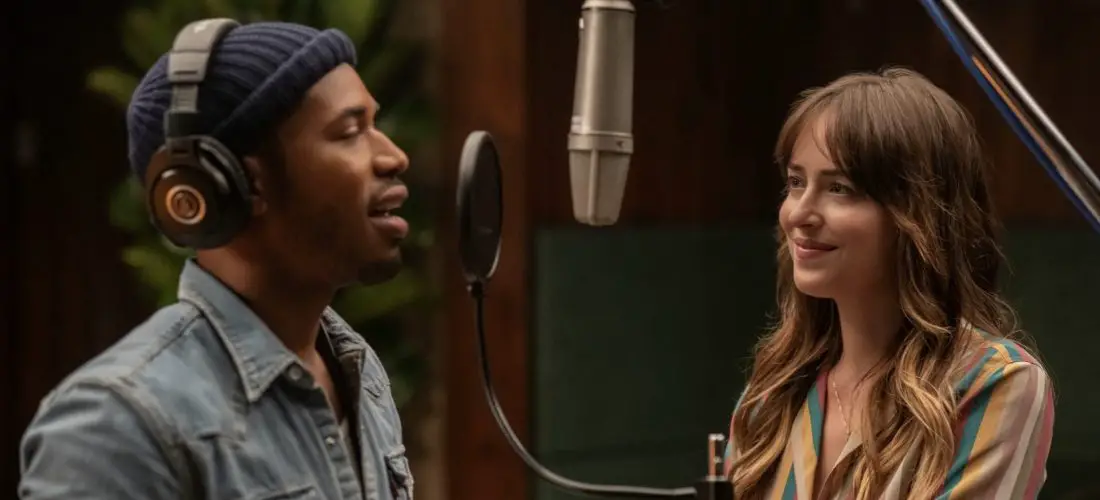‘The High Note’ Review: “Formulaic But Charming”

There are many directors that distinguish themselves through their approach to cinematic language. Meanwhile, there are others that do so by continuously working with certain collaborators on various projects. But with television veteran Nisha Ganatra, we have someone who distinguishes herself through the stories she chooses to helm. With 2019’s Late Night, she told the struggle of a high-profile middle-aged woman trying to stay relevant in the world. Furthermore, that movie delved into the relationship between people on different levels of the workplace hierarchy. So with her latest film, The High Note, it seems her interest in those topics has not waned one bit.
In fact, her passion is so palpable that one could almost accuse this premise of retreading her previous effort. This time, the high-profile middle-aged woman in question is singer Grace Davis (Tracee Ellis Ross). Although she has been a successful artist for several decades, she is now unsure how to progress her career. So when the opportunity arises for Grace’s personal assistant Maggie Sherwoode (Dakota Johnson) to propose her potential future, things begin to take a turn. If that was not enough, Maggie is on her way towards a bigger future herself, as she begins producing for aspiring artist David Cliff (Kelvin Harrison Jr.) on the side.
In all fairness, The High Note adds a nice flair to a pre-existing scenario. Most notably, its focus on the music industry allows it to play around with style in significant ways. Thanks to Wendy Greene Bricmont’s sharp editing, the film has a rhythmic pace that always matches the setting. Even in moments that are more character-based than plot-based, the well-timed shot transitions ensure that these scenes never feel indulgent. Keeping with the story’s attempt to make Grace presentable is Jason McCormick’s cinematography, which relies on diffuse lighting to make characters appear more flattering. Better still, the inherent softness and warm colors create a pleasing aesthetic that Late Night could only dream of having.
READ: ‘Late Night’ Review – A Glimpse Into Breaking The Mold
To the credit of Flora Greeson’s screenplay, the interesting wrinkles are not solely present through sound and visuals. What makes Grace a compelling character is how elegantly it conveys her frustrations with her place in the industry. Throughout the film, she encounters various people that treat her as if she was an inexperienced artist. And in one particular scene, she vents to Maggie about how the industry rarely favors artists of her age and race. While this moment is far from subtle, the writing exudes enough passion that it still resonates quite well. In fact, it is arguably the scene that best shows what attracted Ganatra to this script in the first place. After all, she too is a middle-aged woman of color in the entertainment world.
That said, these wrinkles largely occur on the surface, which leaves The High Note in an interesting spot. It is a film that repurposes Late Night into a more aesthetically pleasing package while also retaining much of its core. Therefore, it reaches its peak whenever it focuses on a high-profile character like Grace in some capacity. Whether that involves her preparing for a concert or her singing in a car with Maggie, it sketches out a character that is awfully delightful to watch. And with a performer as commanding as Ross, the movie is effortless at presenting someone deserving of a high-profile status. Quite honestly, it is so terrific at bringing Grace to life that one wishes she was the actual main character.
As with Ganatra’s last movie, this one relegates the role of the protagonist to a lower-status person like Maggie. This is not to say that the material surrounding her – and by extension, David – is by any means unengaging. Besides, all the filmmaking choices that made the Grace sections enjoyable are present here. To be more generous, it is the one section that best depicts the joy of making music. Since Maggie is someone with the passion to revise a piece to perfection, the film takes its time showing the gradual path to a refined product. It also helps that Johnson is wonderful at conveying the stern and approachable sides to her character.
Of course, retaining the core of an earlier work implies that it carries over any weaknesses. As such, it is not surprising to say that The High Note is not exempt from that principle. Specifically, it becomes less interesting once it tries to shake up its fairly simple narrative. This is most apparent in the movie’s final stretch, where it presents one baffling revelation that clashes with everything preceding it. Sure, this particular plot beat is necessary to reach its admittedly heartwarming finale, and it’s at least effective in its unpredictability. Nevertheless, it requires a suspension of disbelief that would make more sense in a comedy much broader than this.
It’s a shame The High Note finishes with its most wobbly moments, really. Because prior to that, it is a strong example of how a director can evolve when working with old material. As much as Ganatra should lean on her strengths even more, I am happy the movie hits a good stride more often than not. If nothing else, this is a great star vehicle for Ross, who genuinely deserves to be a household name by now. At no point does it break any ground for music-based films, but that hardly matters when the final product is this cozy and charming. – Mark Tan
Rating: 7/10
The High Note is now available on various VOD platforms.
The film stars Dakota Johnson, Tracee Ellis Ross, Kelvin Harrison Jr., Ice Cube, Zoe Chao, and June Diane Raphael.






